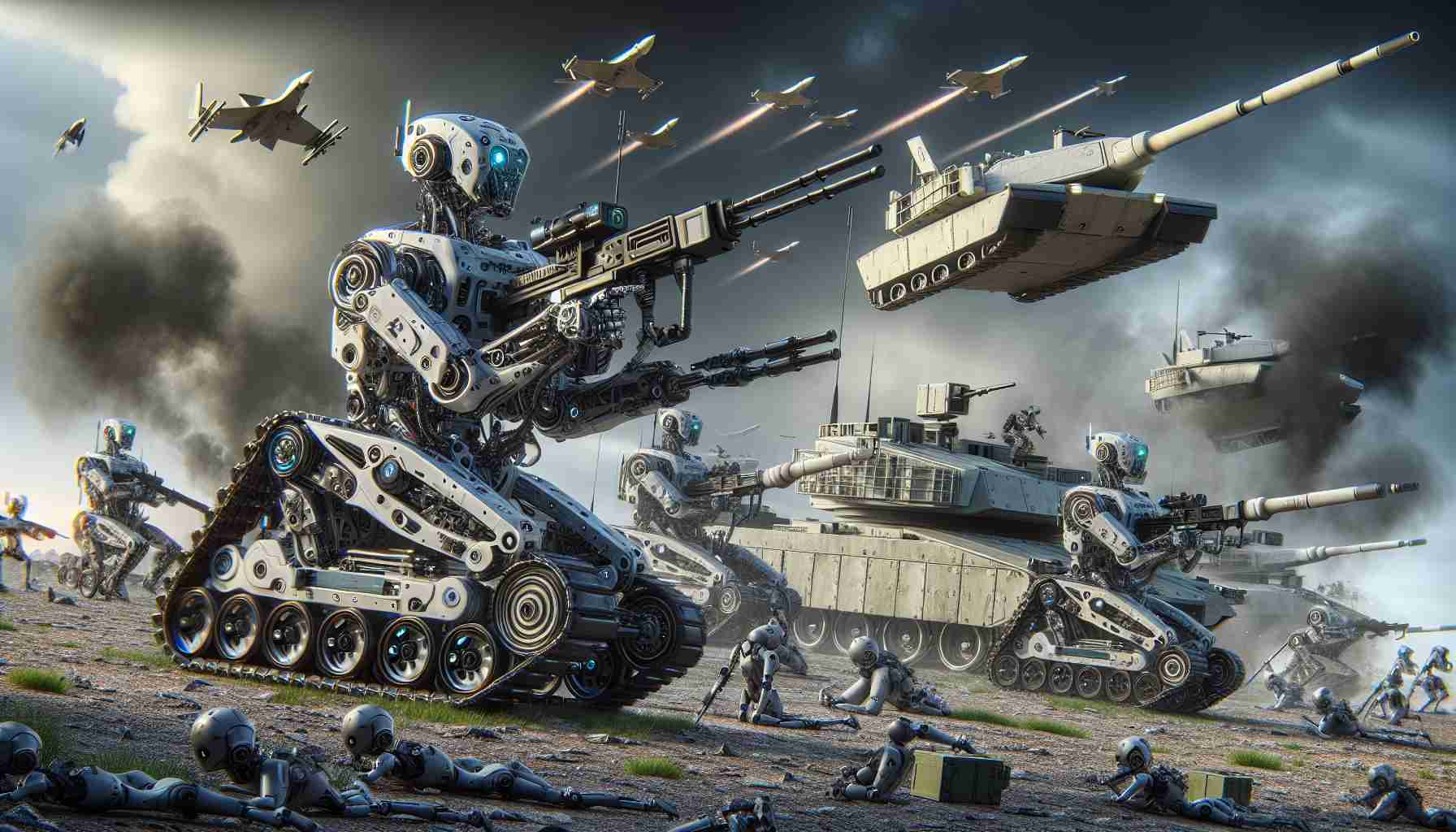The advent of artificial intelligence (AI) has revolutionized various aspects of our lives, including warfare. As technology continues to advance, the development of fully autonomous weapons is becoming an alarming reality. In this article, we will delve into the potential risks and consequences of AI warfare, shedding light on a future where human decision-making is no longer a part of the battlefield.
The concept of fully autonomous weapons entails machines capable of independently selecting and engaging targets without any human intervention. These weapons would possess advanced AI algorithms that evaluate situations and make split-second decisions based on predefined rules. While proponents argue that autonomous weapons could increase precision and efficiency on the battlefield, critics raise valid concerns regarding the ethical implications and the potential for unintended consequences.
Without human decision-making, the deployment of fully autonomous weapons presents several significant risks. One of the primary concerns is the difficulty of ensuring accountability. In the fog of war, when machines are carrying out attacks, it becomes challenging to attribute responsibility to any particular individual or entity. This lack of accountability may further hamper efforts to prevent war crimes and violations of international humanitarian law.
Additionally, the potential for unpredictable behavior in autonomous weapons is a cause for worry. Despite the sophisticated algorithms in place, unforeseen circumstances, technical glitches, or the manipulation of these systems by malicious actors can lead to unintended targets and collateral damage. With AI making the final call on life and death, the consequences of any error or malfunction could be devastating.
Moreover, the adoption of fully autonomous weapons could escalate conflicts. As countries develop these advanced technologies, there is a heightened risk of an arms race with each nation striving to outmatch the capabilities of their adversaries. This race for superiority may destabilize global security and increase the likelihood of warfare.
To mitigate these risks, stricter regulations and international agreements governing the use of AI in warfare are necessary. A comprehensive framework that addresses concerns related to legal, ethical, and accountability aspects should be established. It is crucial to define clear guidelines on the permissible applications of autonomous weapons and to determine the level of human oversight required during their deployment.
As with any emerging technology, it is vital to approach AI warfare with meticulous caution. We must carefully consider the potential consequences and prevent impulsive actions driven solely by the allure of technological advancements. The human element in decision-making plays a critical role in upholding ethical standards and safeguarding innocent lives.
Frequently Asked Questions (FAQ)
What is AI warfare?
AI warfare refers to the use of artificial intelligence technology in military operations, particularly in the design and deployment of autonomous weapons.
What are fully autonomous weapons?
Fully autonomous weapons are machines equipped with AI algorithms that can independently select and engage targets without any human intervention.
What are the risks of AI warfare?
The risks of AI warfare include a lack of accountability, potential for unintended consequences, escalation of conflicts, and the erosion of ethical standards.
How can the risks of AI warfare be mitigated?
Strict regulations, international agreements, and a comprehensive framework addressing legal, ethical, and accountability aspects can help mitigate the risks associated with AI warfare.
What role does human decision-making play in AI warfare?
Human decision-making is crucial in upholding ethical standards and ensuring the protection of innocent lives amidst the use of AI warfare technologies.
Sources:
- Center for a New American Security. Available at https://www.cnas.org/
- CNN. Available at https://www.cnn.com/
The advent of artificial intelligence (AI) has revolutionized various industries, and the field of warfare is no exception. The development of fully autonomous weapons, machines capable of independently selecting and engaging targets without any human intervention, is becoming a reality. While proponents argue the potential benefits of autonomous weapons, critics raise valid concerns about the ethical implications and the risks associated with their deployment.
One significant concern is the difficulty of ensuring accountability when fully autonomous weapons are in operation. In the midst of warfare, it becomes challenging to attribute responsibility to any individual or entity when machines are carrying out attacks. This lack of accountability hampers efforts to prevent war crimes and violations of international humanitarian law. Stricter regulations and international agreements are necessary to address these concerns and establish clear guidelines for the use of AI in warfare.
Another issue is the potential for unintended consequences and unpredictable behavior in autonomous weapons. Despite sophisticated algorithms, unforeseen circumstances, technical glitches, or manipulation by malicious actors can lead to unintended targets and collateral damage. The consequences of any error or malfunction could be devastating when AI makes the final decision on life and death. These risks highlight the need for comprehensive frameworks that address legal, ethical, and accountability aspects of autonomous weapons.
Furthermore, the adoption of fully autonomous weapons may escalate conflicts. As countries develop these technologies, there is a heightened risk of an arms race, with each nation striving to outmatch adversaries’ capabilities. This race for superiority can destabilize global security and increase the likelihood of warfare. It is crucial to mitigate these risks through international cooperation and agreements that govern the use of AI in warfare.
To learn more about these topics and stay informed about developments in AI warfare, the Center for a New American Security is a valuable resource. Their website, https://www.cnas.org/, provides insightful analysis and research on security and defense issues, including the impact of AI in warfare. Additionally, CNN (https://www.cnn.com/) covers a range of news stories and analysis related to AI and its implications in various fields, including warfare.
In conclusion, the development and deployment of fully autonomous weapons have significant risks and ethical implications. Stricter regulations and international agreements are needed to address these concerns and establish a comprehensive framework for the use of AI in warfare. Human decision-making remains vital in upholding ethical standards and safeguarding innocent lives amidst the use of AI warfare technologies.
The source of the article is from the blog oinegro.com.br

